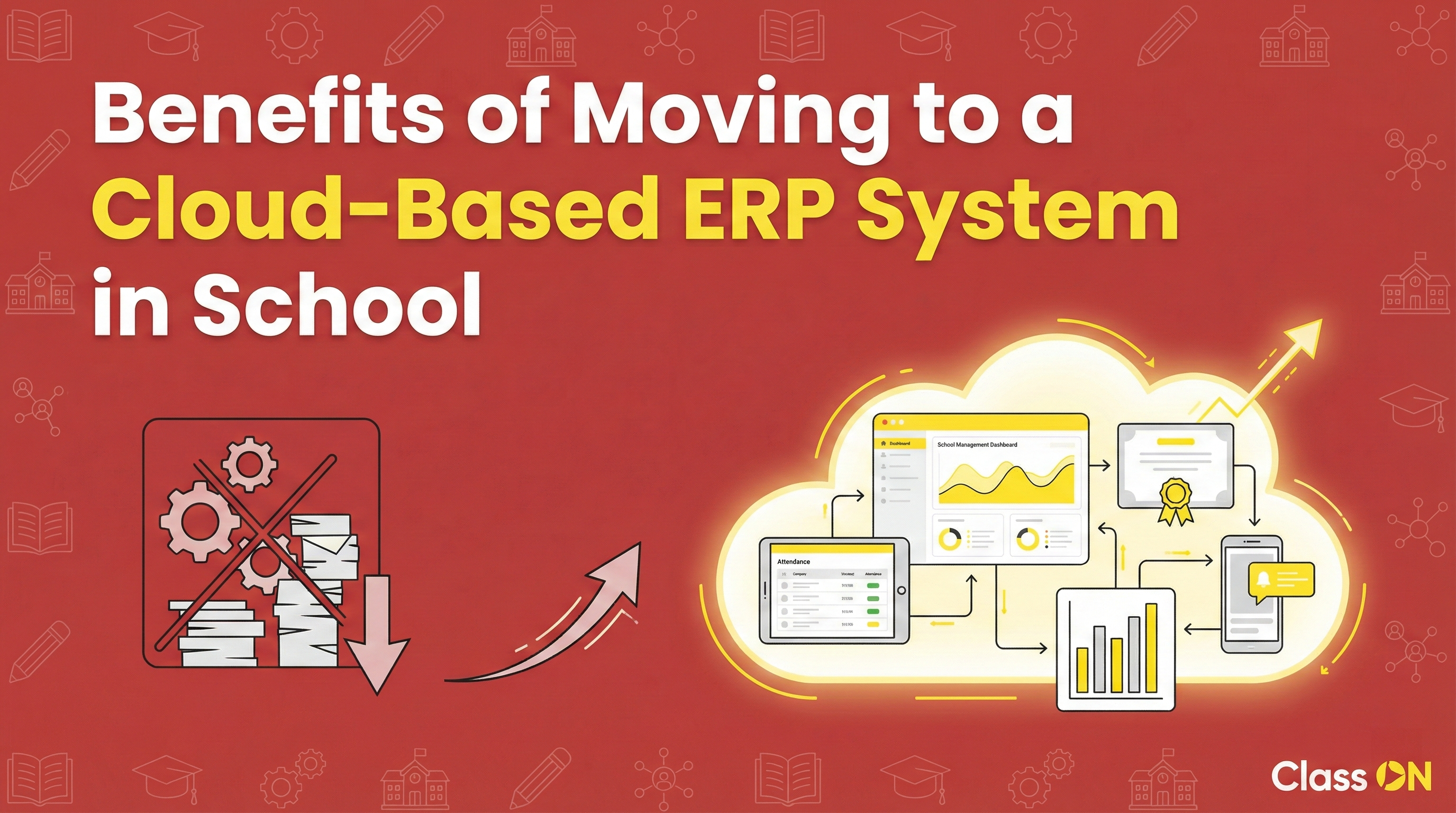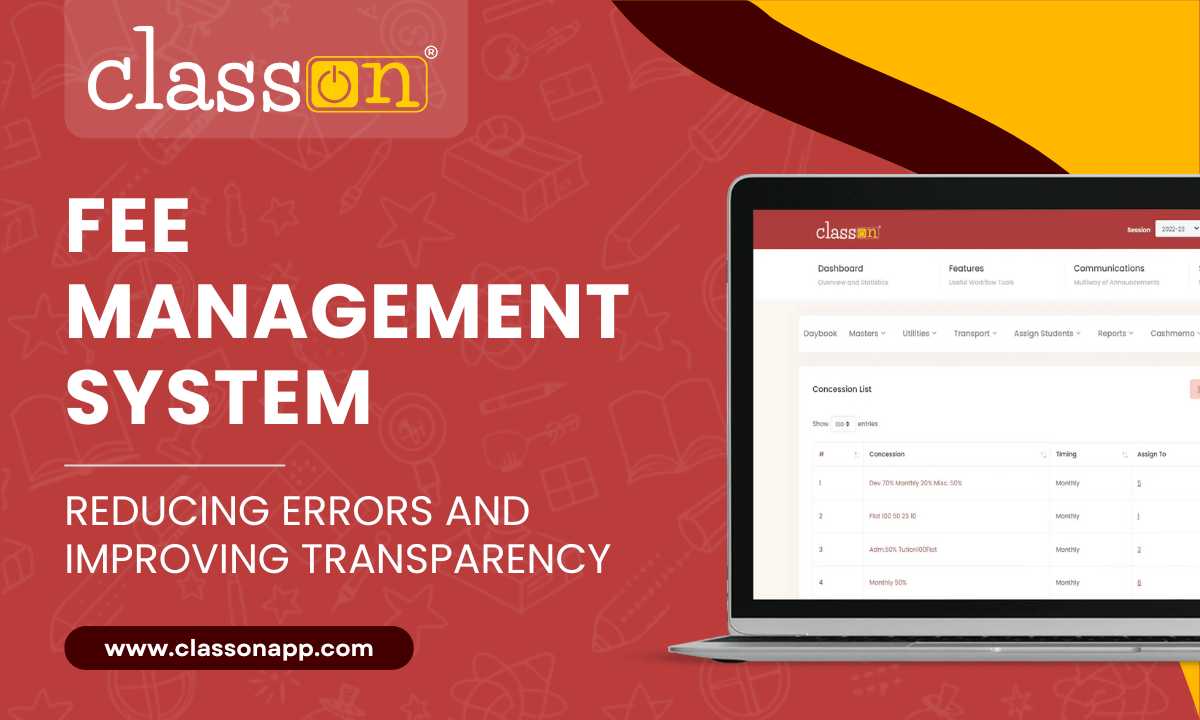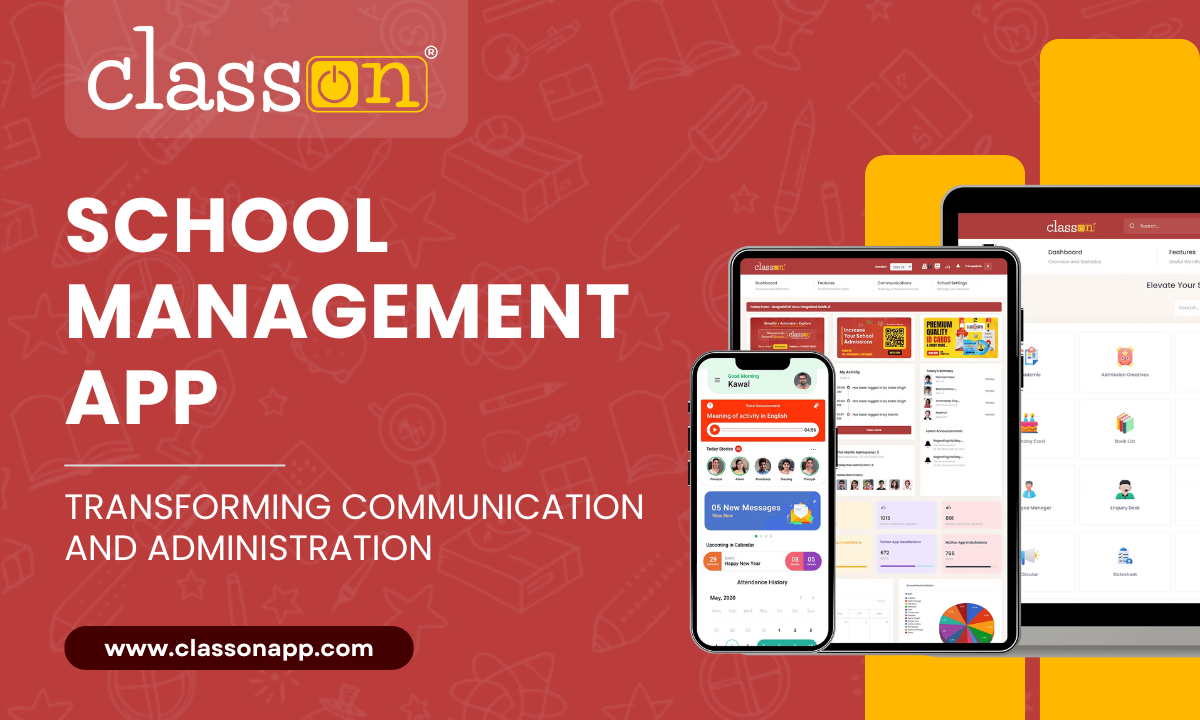
In today’s digital age, schools increasingly use technology to streamline operations and improve efficiency. One technology solution that has gained popularity in recent years is the cloud-based ERP system. This software can help schools manage various tasks, from financial management to student data tracking. This blog post will examine the benefits of adopting a cloud-based school management software in schools.
First, let’s define what a cloud-based ERP system is. An ERP or enterprise resource planning system is a software solution that integrates multiple business processes into a single system. This includes tasks like accounting, human resources, and inventory management. A cloud-based ERP system simply means the software is hosted on the cloud rather than on a local server or individual computers.
Now let’s dive into the benefits of using a cloud-based school ERP software.
Improved Efficiency
A cloud-based ERP system can significantly enhance the efficiency of schools by bringing together all the data and business processes in one centralised system. This integration saves time and mitigates errors, making tasks such as student attendance tracking, grading, and scheduling easier to manage. By automating these tasks, staff can free up time to concentrate on more critical responsibilities like student engagement and education. This allows teachers to devote more time to developing lesson plans, providing individual attention to students, and improving overall education quality. A cloud-based ERP system can ultimately optimise operational efficiency and help schools achieve their academic goals.
Cost Savings
A cloud-based ERP system can also offer cost savings for schools. Hosting all data on the cloud eliminates the need for expensive hardware and servers, which can reduce costs significantly. Moreover, cloud-based ERP systems often have lower upfront costs and lower total cost of ownership, resulting in inferior software licensing fees. This can be especially advantageous for smaller schools or those with budget constraints. With cloud-based ERP systems, schools can leverage enterprise-level software features without incurring the high costs of purchasing and maintaining an on-premises system. Moving to the cloud can help schools optimise their IT spending and allocate resources towards other critical areas.
Enhanced Security
Data security is critical for schools, particularly regarding safeguarding student information. A cloud-based ERP system can help improve a school’s security posture by providing solid data encryption, backup, and recovery features. Cloud-based solutions are typically more secure than on-premises systems since they are hosted on servers continuously monitored and updated by experienced IT professionals. Schools can rely on robust data security measures and access control protocols to protect sensitive information. In case of any unexpected data loss or outage, cloud-based ERP systems offer reliable disaster recovery options to ensure business continuity.
Real-Time Data Access
One of the key benefits of implementing a cloud-based ERP system in schools is real-time data access. With this system, teachers and staff can access vital information, such as student data and attendance records, in real time from any device with an internet connection. This can be especially useful for administrators who need to make quick decisions based on current data, such as adjusting classroom schedules or allocating resources. Real-time data access ensures stakeholders access the most up-to-date information, allowing them to make informed decisions and optimise school operations.
Better Communication
A cloud-based ERP system can enhance communication between teachers, staff, and parents. Parents can access the system to view their child’s grades, attendance, and upcoming assignments. This helps parents stay informed about their child’s progress and enables teachers to communicate with them about their child’s education. With real-time updates, teachers can share student progress and communicate important information quickly and effectively, promoting a collaborative and engaged learning environment. Ultimately, cloud-based ERP systems can create a more transparent and informed educational experience for all stakeholders.
Integration with School Management Software
A cloud-based Enterprise Resource Planning (ERP) system for schools can integrate with other software systems, such as Student Information and Learning Management Systems, creating a seamless experience for teachers and staff. This means they can access all the necessary data from a single interface, eliminating the need for multiple software solutions. This helps to save time and money, as purchasing and maintaining multiple software solutions can be costly and time-consuming. Additionally, integrating various software systems helps streamline administrative processes, improving efficiency and reducing errors. A cloud-based ERP system can significantly benefit schools by providing an all-in-one solution for their management needs.
In conclusion, a cloud-based ERP system can provide many benefits for schools, including maximizing school efficiency, cost savings, enhanced security, real-time data access, better communication, and integration with other school management software. If you’re considering implementing a cloud-based ERP system in your school, choosing one tailored to your specific needs and budget is essential. With the right system, you can streamline your school’s operations and improve the overall educational experience for students, teachers, and parents. Click here for best school erp software in India






